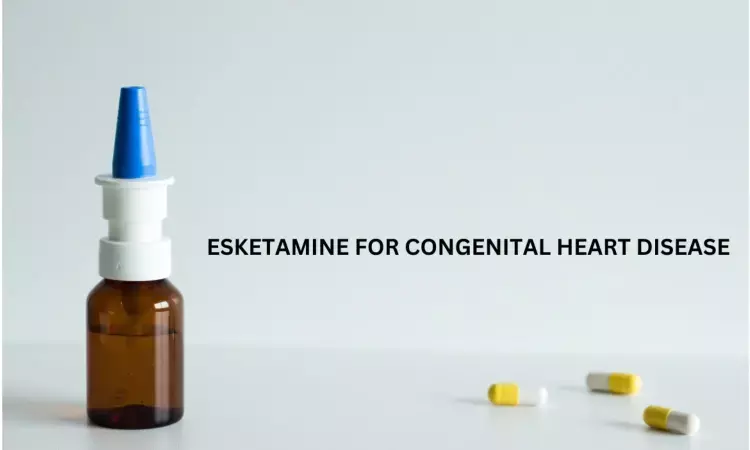- Home
- Medical news & Guidelines
- Anesthesiology
- Cardiology and CTVS
- Critical Care
- Dentistry
- Dermatology
- Diabetes and Endocrinology
- ENT
- Gastroenterology
- Medicine
- Nephrology
- Neurology
- Obstretics-Gynaecology
- Oncology
- Ophthalmology
- Orthopaedics
- Pediatrics-Neonatology
- Psychiatry
- Pulmonology
- Radiology
- Surgery
- Urology
- Laboratory Medicine
- Diet
- Nursing
- Paramedical
- Physiotherapy
- Health news
- Fact Check
- Bone Health Fact Check
- Brain Health Fact Check
- Cancer Related Fact Check
- Child Care Fact Check
- Dental and oral health fact check
- Diabetes and metabolic health fact check
- Diet and Nutrition Fact Check
- Eye and ENT Care Fact Check
- Fitness fact check
- Gut health fact check
- Heart health fact check
- Kidney health fact check
- Medical education fact check
- Men's health fact check
- Respiratory fact check
- Skin and hair care fact check
- Vaccine and Immunization fact check
- Women's health fact check
- AYUSH
- State News
- Andaman and Nicobar Islands
- Andhra Pradesh
- Arunachal Pradesh
- Assam
- Bihar
- Chandigarh
- Chattisgarh
- Dadra and Nagar Haveli
- Daman and Diu
- Delhi
- Goa
- Gujarat
- Haryana
- Himachal Pradesh
- Jammu & Kashmir
- Jharkhand
- Karnataka
- Kerala
- Ladakh
- Lakshadweep
- Madhya Pradesh
- Maharashtra
- Manipur
- Meghalaya
- Mizoram
- Nagaland
- Odisha
- Puducherry
- Punjab
- Rajasthan
- Sikkim
- Tamil Nadu
- Telangana
- Tripura
- Uttar Pradesh
- Uttrakhand
- West Bengal
- Medical Education
- Industry
Esketamine effective intranasal premedication in children with congenital heart disease

Preoperative pediatric anxiety is a serious disorder and seen in approximately 50-60% of children, especially those aged 1-5 years. This may have a negative psychological impact on children undergoing surgery. Esketamine is made from a drug called ketamine, an anesthetic that has also been used for many years to treat depression.
Recently esketamine, a more potent version of ketamine, earned FDA approval specifically for use as a nasal spray for those with treatment-resistant depression. However, the proper dosage for intranasal use in children with congenital heart disease (CHD) has not been determined.
The current study in BMC Anesthesiology by Jiajia Huang, and team aimed to study the median effective dose (ED50) of esketamine for intranasal premedication in children with CHD and found that 0.7mg/kg was an effective sedation in pediatric patients.
A total of thirty-four children with CHD who needed premedication in March 2021 were enrolled. Intranasal esketamine was initiated at a dose of 1 mg/kg. Based on the outcome of sedation in the previous patient, the dose for the subsequent patient was either increased or reduced by 0.1 mg/kg, which was adjusted between each child.
Successful sedation was defined as a Ramsay Sedation Scale score ≥ 3 and Parental Separation Anxiety Scale score ≤ 2. The required ED50 of esketamine was calculated using the modified sequential method. Non-invasive blood pressure, heart rate, saturation of peripheral oxygen, sedation onset time, and adverse reactions were recorded at 5 min intervals after drug administration.
The key findings of the study are
• The 34 children enrolled had a mean age of 22.5 ± 16.4 (4–54) months and a mean weight of 11.2 ± 3.6 (5.5–20.5) kg; American Society of Anesthesiologists classification I–III.
• The ED50 of intranasal S(+)-ketamine (esketamine) required for preoperative sedation in pediatric patients with CHD was 0.7 (95% confidence interval: 0.54–0.86) mg/kg.
• The mean sedation onset time was 16.39 ± 7.24 min. No serious adverse events, such as respiratory distress, nausea, and vomiting were observed.
Jiajia Huang and team, concluded that "The ED50 of intranasal esketamine was 0.7 mg/kg, which was safe and effective for preoperative sedation in pediatric patients with CHD."
Reference: Huang, J., Liu, D., Bai, J. et al. Median effective dose of esketamine for intranasal premedication in children with congenital heart disease. BMC Anesthesiol 23, 129 (2023). https://doi.org/10.1186/s12871-023-02077-1
MSc. Neuroscience
Niveditha Subramani a MSc. Neuroscience (Faculty of Medicine) graduate from University of Madras, Chennai. Ambitious in Neuro research having worked in motor diseases and neuron apoptosis is interested in more of new upcoming research and their advancement in field of medicine. She has an engrossed skill towards writing and her roles at Medical dialogue include Sr. Content writer. Her news covers new discoveries and updates in field of medicine. She can be reached at editorial@medicaldialogues.in
Dr Kamal Kant Kohli-MBBS, DTCD- a chest specialist with more than 30 years of practice and a flair for writing clinical articles, Dr Kamal Kant Kohli joined Medical Dialogues as a Chief Editor of Medical News. Besides writing articles, as an editor, he proofreads and verifies all the medical content published on Medical Dialogues including those coming from journals, studies,medical conferences,guidelines etc. Email: drkohli@medicaldialogues.in. Contact no. 011-43720751


